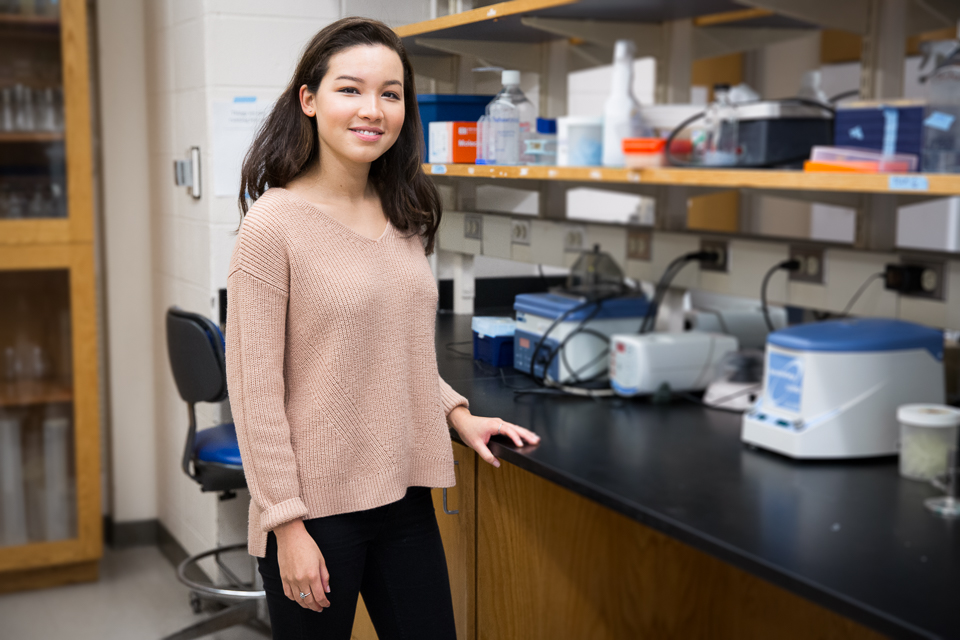Biotech Student Hopes Her Research Will Enable Long-term Space Exploration

Photo Credit: Simon Goodacre
January 23, 2018
Helen Wong | Graduate School of Arts and Sciences
As a dual MS/MBA student in the Biotechnology program, Ana Ward combines disparate interests in botany, astronomy, and bioengineering with a singular focus: to research the impacts of outer space on terrestrial life and help pave the way for long-term space exploration.
Growing up in South Florida, Ana always had an interest in plants, experimenting with the tomatoes in her garden and pollinating them by hand to produce better yields. An internship at the USDA’s Invasive Plant Research Laboratory gave Ana the opportunity to work with plants outside of her garden, and she decided to pursue her interest in botany further. As an undergraduate at the University of Florida, she studied agronomy and plant sciences, but also discovered a passion for astronomy and the planetary sciences. This led her to work at the Planetary Geology Laboratory, where she first began to investigate galactic cosmic radiation, or GCR, which she continues to study today.
The idea of growing crops on Mars or the moon inspires the public imagination, but knowledge of how GCR would affect seeds transported through space would be essential to the success of such a project. “Mankind’s transit to outer space will take terrestrial biology outside of the protection of Earth’s magnetic field and expose organisms to GCR,” says Ana. “These rays originate outside of the solar system and consist primarily of high energy protons and atomic nuclei.” Seeds affected by GCR will likely undergo genomic changes that threaten the plant’s survival. “The consequences are poorly understood and little research has been done to understand the effects of GCR exposure on seed biology.”
Ana hopes that completing a master’s degree in Biotechnology will help her better understand the challenges associated with the pursuit of agriculture in space. She chose to attend Brandeis because of its stellar reputation as a research institution, the comprehensive but flexible nature of its Biotechnology program, and her acceptance into the 2018 DEIS scholars cohort. “I was initially unsure about attending a master’s program because I was not in a position where it was financially feasible. The support of the DEIS program has allowed me to pursue my academic and career goals,” says Ana. “Also, being a graduate student can be quite hectic. The intense immersion into the interdisciplinary field of biotechnology and the individual growth I experience are extremely exciting and makes the stressful moments worth it.”
After graduation, Ana hopes to conduct research in a European aerospace center, possibly as part of a doctoral program. For students who are interested in Biotechnology, she recommends contacting Neil Simister, the director of graduate studies for the program, to find out if the degree aligns with their interests. For Ana, the program’s dual MS/MBA degree feature has been a perfect fit with her future goals. “Eventually I would like to perhaps manage a space biotechnology company,” she says, “but my long-term career goal is to pave the way for future long-duration space exploration and mankind’s potential transition to outer space.”






